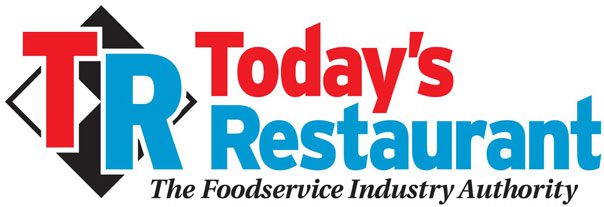
The Importance of a Transparent Supply Chain
By Francine L. Shaw, Co-founder, My Food Source
Restaurant operators have a responsibility to ensure that they’re serving safe, high-quality foods. Consumers have become increasingly concerned with the safety and quality of the foods they eat, plus how the food is grown, sourced, and produced. Many consumers are choosing to support brands that operate sustainably, ethically, and responsibly. In fact, two-thirds of consumers (65%) said they’d switch from their usual brands to buy from companies that are more transparent about their supply chain, openly sharing information about their values (like how they treat the environment, animals, and employees).
To demonstrate a commitment to food safety and quality, sustainability, fair labor, animal welfare, and responsible business practices, restaurants should prioritize supply chain transparency. This helps restaurants identify and mitigate risks, improve communication with suppliers, boost compliance with regulations, and protect their guests, reputation, and bottom line.
The Benefits of Supply Chain Transparency
In today’s globalized marketplace, transparency has become a critical factor in building consumer trust and ensuring business sustainability. A transparent supply chain helps companies gain a competitive advantage and addresses key concerns, such as risk mitigation, compliance with regulations, and ethical sourcing.
One of the primary benefits of a transparent supply chain is boosting customer trust and loyalty. When consumers can see the ethical origins and safe processes involved in the production and distribution of products, they’re more likely to trust and support a brand. Transparency allows consumers to make informed decisions about the brands they support, knowing these companies’ values align with their own.
Supply chain transparency also enables restaurants to improve safety and quality. Visibility throughout the supply chain allows restaurants and their suppliers to identify and mitigate potential risks, whether that’s product recalls, quality control problems, or other concerns. By being aware of these risks – and taking proactive measures to mitigate them – restaurants can prevent costly disruptions and protect their guests and their reputations.
Moreover, a transparent supply chain leads to increased efficiency. Being open and transparent leads to better communication and collaboration across the supply chain. This means that operations are streamlined, delays are reduced, and processes are optimized.
Transparent supply chains especially benefit businesses operating in regulated industries, including restaurants. Compliance with regulations becomes more manageable with a safer, more transparent supply chain. By adhering to legal frameworks, companies avoid legal issues, penalties, and reputational damage.
Ethical sourcing and sustainability are increasingly important factors for consumers. Transparent supply chains support ethical sourcing practices and enable businesses to demonstrate their commitment to social causes and environmental sustainability, issues that are important to their key stakeholders. Consumers are more likely to support brands that align with their values and contribute to a more sustainable future.
Here are some tips for creating a safer, more transparent supply chain:
- Leverage Technology: Leverage digital tools such as AI, machine learning, IoT sensors, and data analytics to enhance transparency and traceability across the supply chain. Real-time data, process automation, and product tracking capabilities enable businesses to monitor their supply chain from source to destination, ensuring transparency at every stage.
- Embrace Collaboration: Foster a culture of open communication and collaboration with suppliers, manufacturers, distributors, and other supply chain partners. All parties can work towards common goals and drive transparency throughout the supply chain by sharing information and addressing issues collectively. Everyone along the supply chain should be willing to share documentation and certification that verify their safe food handling practices.
- Boost Safety and Mitigate Risks: Food safety should be a priority for all restaurants and food businesses. Improving transparency allows brands to effectively identify and mitigate potential risks at every point along the supply chain. Better supply chain visibility means that restaurants and their suppliers can promptly address issues related to product recalls, quality control, and other concerns. This proactive approach minimizes disruptions, safeguards restaurants’ reputations, and protects consumers.
- Establish Clear Standards and Metrics: Develop standards and metrics to measure and monitor supply chain transparency. This includes guidelines for supplier selection, product labeling, responsible sourcing, and sustainable practices. And then proactively (and consistently) ensure that all products you purchase and serve measure up to your high safety and quality standards.
- Empower Employees: Ensure that all employees understand the importance of supply chain transparency and their role in upholding it. Provide training and resources to help them understand how their actions impact the overall integrity of the supply chain. Empower them to always uphold the highest safety standards.
- Enhance Communication: Maintain open communication with internal and external stakeholders, including customers, investors, regulatory bodies, and industry organizations. Transparently share information about supply chain practices, sustainability initiatives, and progress toward goals. Businesses can build trust and strengthen their reputation by engaging stakeholders and addressing their concerns.
A transparent supply chain is crucial for restaurants and other businesses to thrive in today’s competitive landscape. It helps build consumer trust, enhances risk mitigation, increases efficiency, ensures compliance with regulations, and supports ethical sourcing and sustainability. By following these tips and embracing transparency as a core value, restaurants and food businesses can help create a safer, more sustainable future.
Francine L. Shaw, food safety specialist, podcaster, and co-founder of My Food Source, is a successful entrepreneur, author, and speaker who spent 20+ years working in the foodservice industry. Her career has included performing services (operating partner, corporate/private trainer, health inspector, 3rd party inspector, adjunct professor) in various sectors of the foodservice industry. She has written hundreds of articles for national trade magazines and appeared on Dr. Oz, the BBC World Series Radio, and iHeart Radio as a food safety expert.
To read more great articles about the restaurant industry visit www.trnusa.com/blog
Visit us at booth number 1215 at the Food and Beverage Show September 18th
Visit us at booth # 934 at the Florida Restaurant & Lodging/Pizza Tomorrow Summit November 8th.





Recent Comments